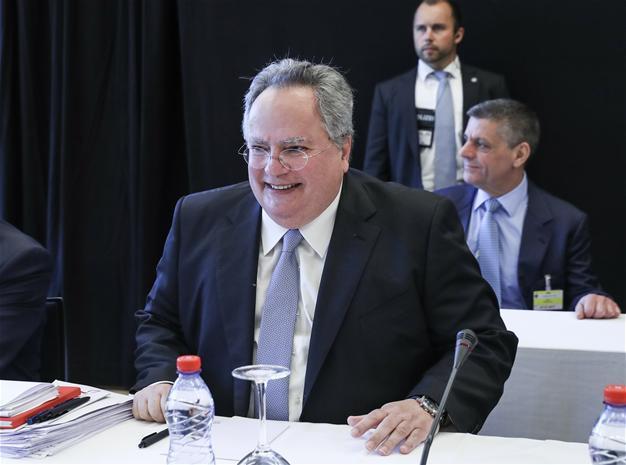Turkey criticizes Greek FM's statements on Cyprus talks
ANKARA
 Turkish Foreign Ministry's spokesman on July 8 criticized Greek Foreign Minister's remarks over the Cyprus issue.
Turkish Foreign Ministry's spokesman on July 8 criticized Greek Foreign Minister's remarks over the Cyprus issue.After a series of failed Cyprus reunification talks between the representatives from the EU, the Turkish and Greek Cypriot leaderships in Swiss Alps, Greece's Foreign Minister Nikos Kotzias blamed Turkish side for having 'intervention rights'.
"It was not possible to accept Turkish intervention rights on
In a written statement, spokesman Huseyin Muftuoglu responded to Kotzias, saying Turkey attended the conference in Crans-Montana "with the goodwill and constructive attitude we had been displaying since the very beginning of the negotiation process, with the aim of reaching a just and sustainable comprehensive settlement to the Cyprus issue."
"During this meeting, which was the last Conference, we exerted sincere efforts for two weeks towards a settlement," he said. "As for the answer to why the Conference on Cyprus failed to succeed, it can also be seen from the remarks shared by Greek Foreign Minister Mr. Kotzias yesterday (July 7) on his Twitter account."
Muftuoglu said Kotzias "seems to have forgotten that he, with the attitude he displayed, was the one responsible for the Conference's lasting no more than a day in January."
"The uncompromising and non-constructive attitude that underlies Minister Kotzias' remarks was displayed throughout the entire Conference by the Greek Cypriot and Greek sides," the spokesman said. "The Conference has demonstrated yet again that it will not be possible to reach a settlement in the absence of good faith and political will."
The UN is seeking a peace deal to unite Cyprus under a federal umbrella that could also define the future of Europe's relations with Turkey, a key player in the conflict.
The Eastern Mediterranean island has been divided since
















